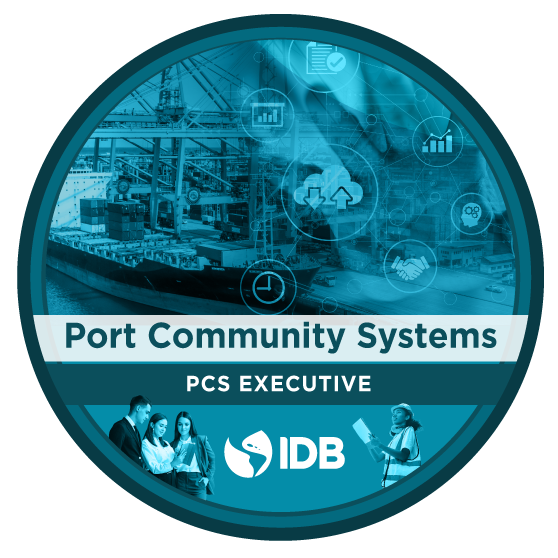Port Community Systems (PCS): How Digitalization Connects People and Processes
Puede obtener esta insignia si completa con éxito el curso.
TIPO DE CURSO
SELF-PACED
FECHAS
-
PRÓXIMAS EDICIONES
2024 TBD
PRECIO
Free
IDIOMA
Inglés
ESFUERZO
24 hours
SOBRE ESTE CURSO
This course will introduce you to the concept of a Port Community System (PCS), a neutral and open electronic platform enabling intelligent and secure exchange of information between public and private stakeholders in a seaport community. The implementation of a PCS can improve the competitive position of the port by increasing efficiency and by providing better and more transparent service to its users. The course offers new perspectives on PCS and the tools needed to implement them, including useful readiness assessment templates and governance models.
AUDIENCIA DEL CURSO
The audience for this course is members of the port community, including directors and technical staff at public sector agencies, and individuals within the private and academic sectors, who want to gain a better understanding and learn the international best practices of implementing a port community system, or PCS.
COSTOS Y REEMBOLSOS
The course development costs have been covered with IDB resources.
ESTRUCTURA DEL CURSO
Establishing a Port Community System (PCS) is a change management project and technological platform that requires collaboration among members of the port community. Through text, videos, and short activities, Module 1 examines the significant roles that port communities, port community actors, and port community committees play in implementing a PCS. Module 1 also addresses how port digitalization aligns with the United Nations Sustainable Development Goals (SDGs).
This module introduces the port community system, or PCS, and showcases how a PCS connects port community actors to achieve greater efficiencies through mutual benefits like centralized communications and shared data.
This module examines three PCS ownership models through theory and international case studies and prompts you to consider what the best approach would be in your port community.
This module guides the conceptual design and implementation of a port community system, including planning services and identifying resource needs, operational costs, and revenues, while emphasizing the importance of information security throughout the system.
This module provides a practical tool for port communities to assess their readiness to implement a PCS in their ports.
The implementation of a port community system and the digitalization of port operations are closely related to the digital transformation and to the development of smart ports that leverage emerging technologies to increase port efficiencies. This module includes a sampling of international smart port initiatives and provides an overview of the technological and legal ecosystem needed to implement a smart port, based on international best practices, and it concludes with a call to action.
In this optional module, you have the opportunity to develop an advocacy communication plan in which you identify PCS stakeholders in your port community along with their key characteristics, which will help you develop a strategy and timeline for advocating for PCS implementation. Your work from prior course modules, including your port community actor network sketch, prioritized PCS services, and identified PCS implementation benefits and challenges, will be useful to completing the plan.
PROGRAMAS RELACIONADOS
ÁREAS DE CONOCIMIENTO
SECTORS
